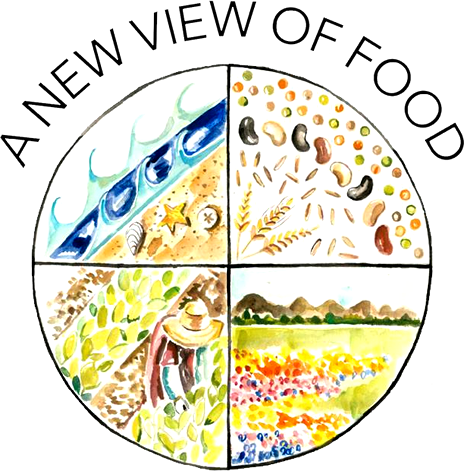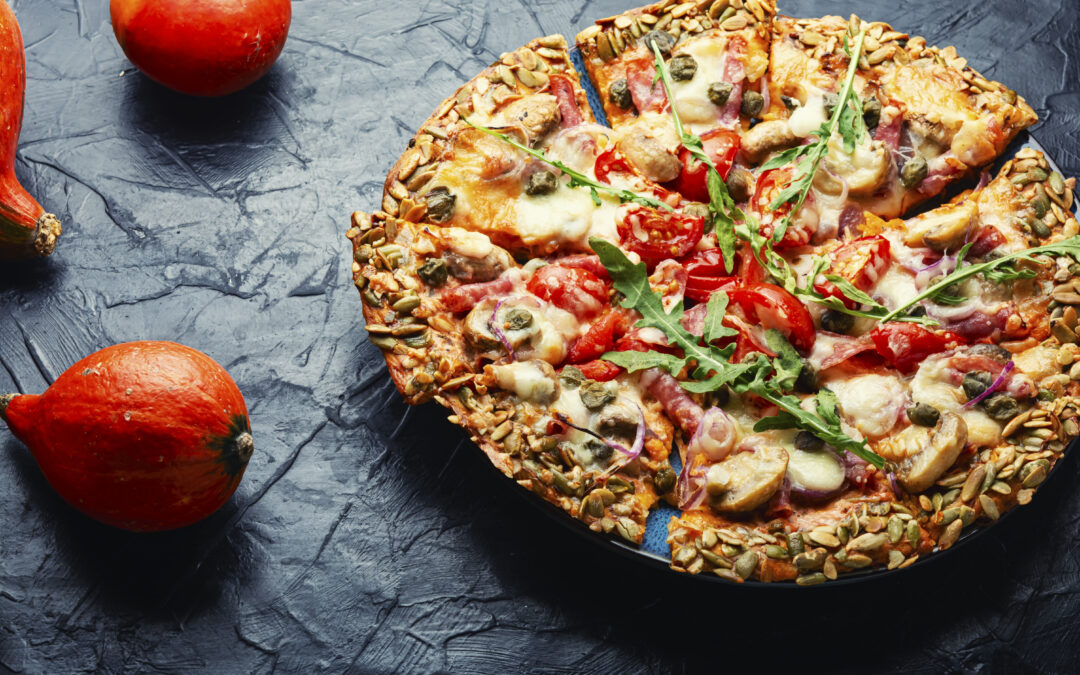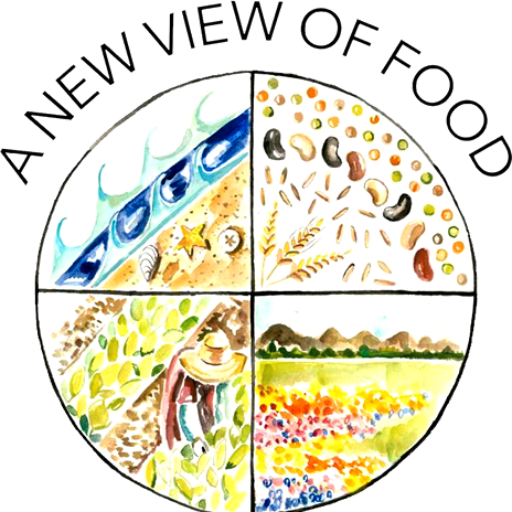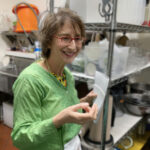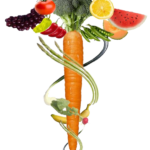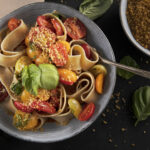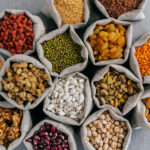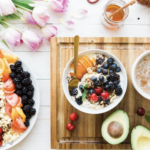1. Forgiveness
You must forgive yourself for getting where you are (wherever that is, health wise, career wise, size wise, etc.) and you absolutely must forgive others who have hurt you. What does forgiveness have to do with food? Just about everything. Feeding yourself, feeding others is an act of love. When you feel that love, you naturally gravitate toward healthier food choices. When you are having negative emotions-oh let’s just say it… when you hate yourself, you feel like eating crap. How do I know? I was anorexic and then bulimic in my teens and early 20’s. I still am capable of some emotional and stress eating, although I might be munching on pistachios now and not donuts. Learning to deal effectively with your stress is going to allow your body to get into a fat burning, healing state; when you are full of emotional pain, this just cannot happen. How do you start to forgive? I read The Book of Joy, by His Holiness the Dalai Lama and Archbishop Desmond Tutu. I also received coaching, (and counseling earlier in my life) and I learned to let some things go. I strongly advise you to do the work: get a therapist, meditate, write it out in a journal; Do whatever you need to do to heal, and forgive yourself. If you don’t work on this first step, none of this will make any sense and your ability to maintain a truly healthy state will remain elusive.
2. You’ll need a kitchen makeover next.
Chef AJ says, “If it’s in your house, it’s in your mouth”, and this is very true. I’ve been known to throw parts of vegan sweets into the compost, so that I don’t have to rely on willpower. You don’t want to have to be continually making decisions about what to eat or cook in your own home. It’s going to be hard enough outside of your home. Your pantries need to be free of animal products, and overly processed food (whole grain pasta and tofu/tempeh are some examples of minimally processed food, which can be part of a very health promoting diet). Go shopping and stock up on whole grains, legumes, fruits, vegetables, seeds, nuts and spices. Get organized with mason or other glass jars. In SF, we have the fabulous Rainbow Grocery, where most food is found in bulk, and it can be quite an exciting outing to experience all the aisles of whole plant food. If you aren’t ready to make your own plant milk, there are so many to try. Even Trader Joes has an organic soy milk that is just organic soybeans and water. Some gadgets are very helpful, especially a high powered blender, like a Vitamix or a Blendtec. A food processor, InstantPot, or slow cooker, can also save you time and allow you to make different dishes with less effort. An electric spice grinder or coffee bean grinder is very helpful for grinding flax seeds; a cutting board, sharp knives, and good quality cookware are essential. I use stainless steel, and some ceramic (like le Creuset). I’ve learned to bake on parchment paper (and so will you!). Label and organize your spices, so you can find them easily.
3. Get more comfortable with the science of plant based nutrition.
Watch and read. There is so much evidence that this is the healthiest diet for humans. If you still have doubts, please get clarity. Here are some resources I hope you will find persuasive. The science is overwhelming, but I am aware that there is a lot of conflicting noise out there. It can be hard to know what really are the facts. These are some resources you can trust:
- Forks Over Knives (the film is fabulous, and they have cookbooks, and meal plans, and quarterly magazines)
- Any book or video by Dr. Neal Barnard. He heads up the Physicians Committee for Responsible Medicine, in D.C. I would encourage you to check out their website as well, as they have educational material on line, as well as for sale. Dr. Barnard has written many practical and informative books and has numerous peer reviewed publications. He recently published The Vegan Starter Kit which will be an excellent guide. His Barnard Medical Center offers patients primary care with an emphasis on Plant Based Nutrition, and PCRM offers a free 21 day Vegan Kickstart in multiple languages for people wanting 21 days of support, education and meal plans.
- NutritionFacts.org, the amazing ad-free website by Dr. Michael Greger. Dr. Greger and his team read every English language research paper on nutrition every year and put out 5-8 minute videos almost daily. You can sign up to receive these emails and sometimes blogs. His book, How Not to Die, is a must read for its combination of the science and practical information.
- T. Colin Campbell, PhD published the China Study and Whole, both amazing books, that could change your entire way of thinking about nutrition.
- Caldwell Esselstyn, Jr., MD wrote How to Prevent and Reverse Heart Disease after his own incredible research on our #1 killer. Any videos you can watch of this dedicated physician will have you also understanding and repeating his words, “NO OIL!”
- There are many other physician leaders, with books and video presentations available on YouTube: Dean Ornish, MD was perhaps the first physician to demonstrate that heart disease could be reversed (Nathan Pritikin was able to demonstrate this in the 1970’s but he was an engineer). Dr. Ornish is now reversing prostate cancer with diet and lifestyle changes. John McDougall, MD, Joel Kahn, MD, Michael Klaper, MD, Garth Davis, MD, Kim Williams, MD, Joel Fuhrman, MD, Milton Mills, MD are just some of the inspiring speakers you may find on-line and on the bookshelves.
- There are also incredible nutritionists whom I trust and admire: Brenda Davis, RD and Julieanna Hever, RD. Their books remain important resources for me as I guide others on this journey to health. Jeff Novick, RD and Doug Lisle, PhD have videos on YouTube that are in the must watch category. “Calorie Density: How to Eat More, Weigh Less and Live Longer”, and “The Pleasure Trap” (with a book by the same name) will absolutely change the way you think about food.
- For more science based information, check out www.ThePlantricianProject.org ,www.TheCenterforNutritionStudies.org, www.pcrm.org, and www.NutritionFacts.org
- For more on Veganism: John Robbins, Victoria Moran and Will Tuttle, PhD will absolutely take you to a deeper understanding.
- If you want even more formal education, take the eCornell course on Plant Based Nutrition offered by Dr. T. Colin Campbells’ Center for Nutrition Studies.
4. Get a cookbook or two (or more if you like to have them), subscribe to a plant based food blog, or a Facebook page dedicated to whole plant food cooking.
Forks Over Knives, Engine 2, The How Not to Die Cookbook, Plant Powered Families and the Vegiterranean Diet are all wonderful. However, you should know that every book about the power of plant based nutrition usually includes some of the authors’ favorite recipes. You can also find recipes on line using Google or on social media sites, like Instagram. The website One Green Planet will send you inspiring vegan stories, as well as vegan recipes to enjoy. There are food delivery services, if you absolutely cannot cook for yourself, but I would encourage you to get some skills first and use the meal delivery service only if you absolutely will not be able to prepare your own food. For example, if you are going to be having surgery, and you know that you need a freezer full of whole plant food meals to help simplify your recovery. I had no cooking skills when I decided to become a vegan. The Rouxbe on-line cooking school and Forks Over Knives offers 1, 3 and 6 month cooking courses. I thoroughly enjoyed the 3 month course. Again, I would recommend you get some cooking skills, if you really have never cooked for yourself. Don’t forget to download the Happy Cow App which will lead you to vegan and veg friendly restaurants, farmer markets and shops all over the world. And while you are downloading Apps, Dr. Greger’s Daily Dozen will help you remember exactly what you should be feeding your cells (your own, as well as your friendly microbes).
5. Take care of your physical body: Hydrate, sleep, move and love MORE!
A healthy lifestyle encompasses more than just diet. Spend time with friends, get 6-8 hours of sleep a night, make sure you are managing your stress, incorporate more movement into your days. Some things you cannot change, and I understand that. Do what you can. What is one small change you can make in your lifestyle that will have a positive impact on your overall health? Take that small step every day until it becomes second nature.
6. Get prepared and stay prepared.
Delicious whole plant foods don’t grow on trees (actually, they do)! I mean that if you have to go to work all day with meetings at lunch, and commutes and social events—you have to be prepared. Being consistently prepared with tasty, nutritious food for you to enjoy no matter what else is scheduled comes out of loving yourself and appreciating yourself. If you leave the house empty handed, and say, ‘What the heck, I’ll just find something to eat later’ you aren’t showing any love for yourself. And you are most likely not going to be able to find anything near as nutritious as you can make yourself. You love your pet, you feed her the best you can afford. You love your children and you do the same. I’m just asking that you treat yourself to your love and eat food that will truly be nourishing. You want to center your diet around whole plant foods that reduce your risk of cancer, feed a healthy and diverse gut microbiota, fight inflammation and damaging free radicals, and reverse many chronic diseases. This step is the hardest, and it takes a long time to get down. We all get caught sometimes in a difficult food situation; it might be in an airport, a movie theater, a party or a family dinner at a steakhouse. But you can develop skills that will keep you strong and making the best decisions regardless of the situation. You decide what you want, and don’t settle for much less, because you love yourself and you are worth loving.
7. Enjoy everything you have achieved! Notice all the changes in your body, your mind and your spirit.
Get your labs checked and brag about the improvements. Be enormously proud of the more ethical life you are embracing. Visit a farm animal sanctuary and hug a rescued animal. Then spread the word: Invite some friends over to share your new favorite dish, and let other folks know how easy it is to thrive on plants!
